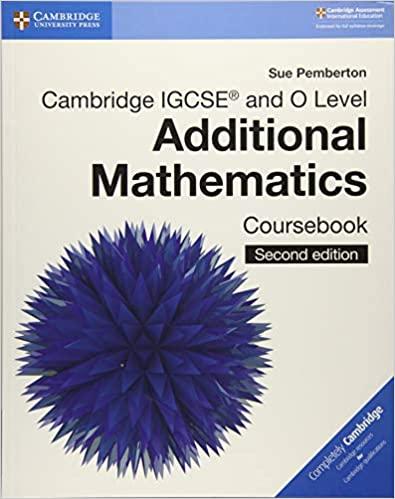Question
Let AP(a; d) denote the set of all the terms of an infinite arithmetic progression with first term a and common difference d>0. If
![]()
Let AP(a; d) denote the set of all the terms of an infinite arithmetic progression with first term a and common difference d>0. If AP(1; 3) AP(2; 5) AP(3; 7) = AP (a; d) then a + d equals_
Step by Step Solution
3.36 Rating (146 Votes )
There are 3 Steps involved in it
Step: 1
The detailed ...
Get Instant Access to Expert-Tailored Solutions
See step-by-step solutions with expert insights and AI powered tools for academic success
Step: 2

Step: 3

Ace Your Homework with AI
Get the answers you need in no time with our AI-driven, step-by-step assistance
Get StartedRecommended Textbook for
Cambridge IGCSE And O Level Additional Mathematics Coursebook
Authors: Sue Pemberton
2nd Edition
1108411665, 9781108411660
Students also viewed these Mathematics questions
Question
Answered: 1 week ago
Question
Answered: 1 week ago
Question
Answered: 1 week ago
Question
Answered: 1 week ago
Question
Answered: 1 week ago
Question
Answered: 1 week ago
Question
Answered: 1 week ago
Question
Answered: 1 week ago
Question
Answered: 1 week ago
Question
Answered: 1 week ago
Question
Answered: 1 week ago
Question
Answered: 1 week ago
Question
Answered: 1 week ago
Question
Answered: 1 week ago
Question
Answered: 1 week ago
Question
Answered: 1 week ago
Question
Answered: 1 week ago
Question
Answered: 1 week ago
Question
Answered: 1 week ago
Question
Answered: 1 week ago
View Answer in SolutionInn App



